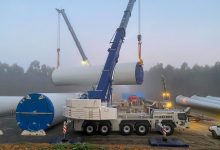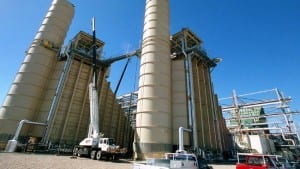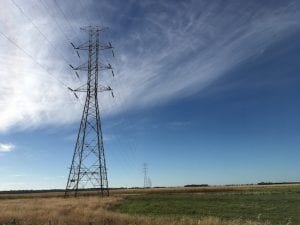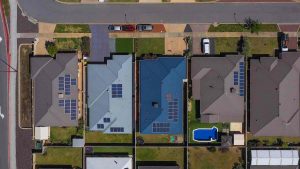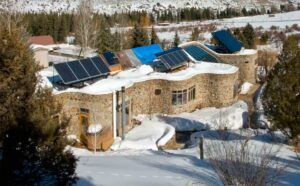It’s not plain sailing for Canadian funds management giant Brookfield as it seeks to navigate Australia’s regulatory hurdles in its bid to take control of Origin Energy, and launch into one of the country’s most ambitious green energy plans.
Brookfield leads an $18.7 billion bid for Origin that also involves Mid Ocean Energy, a US company that plans to take Origin’s LNG business. Brookfield wants to focus on the utility business, and has promised a $30 billion investment to build some 14GW of wind, solar and storage in Australia in the next decade.
That promise, and its professed ability to go faster on the green energy transition than the existing big players in the market, is one of the big selling points of its proposal. But the ACCC has questioned this, asking Brookfield to provide more evidence that it can actually succeed where others have failed.
The concerns emerge as some institutional shareholders also question whether the deal is value for money, suggesting changing market conditions mean Origin is worth significantly more than the Brookfield offer, and amid the debate over the planned 2025 closure of Origin’s big coal asset, the Eraring generator in NSW.
But the question over Brookfield’s green energy plans may not be the biggest problem with the ACCC probe.
Brookfield is also a major shareholder (45.4 per cent) in the Victorian based transmission company AusNet, and the ACCC – in a letter to Brookfield late last month – reveals it is not happy with the answers it has been given on the question of control.
The ACCC wrote on August 29 that it had information that appear to contradict Brookfield’s earlier submissions, and which indicated a level of “influence” and “active management” of AusNet.
Of particular concern was Brookfield’s visibility and influence over the connection approvals process at AusNet.
“It is apparent …. that staff in Brookfield’s Infrastructure Business unit (the business unit in which AusNet sits) received the details of many (and possible all) proposed connections to AusNet’s transmission network, including for contracts or projects with expenditure within the thresholds set out in the application,” the ACCC writes.
“The evidence also indicates that, before a connection decision is signed off by the AusNet CEO, endorsement of the contract or project is sought from Brookfield Infrastructure staff.”
It says this information, including detailed financial information, is circulated among other staff members of the Brookfield infrastructure unit. Other shareholders in AusNet do not receive this information, the ACCC noted.
“The ACCC has found numerous examples of Brookfield Infrastructure staff receiving potentially sensitive information about third parties seeking to connect to the AusNEt transmission network,” it wrote.
It also said it had found evidence that AusNet had shared “high level recommendations” of renewable development projects in Victoria that Brookfield Renewables could target, and had discussed how it could help progress renewable energy projects in the National Electricity Market.
The ACCC said it is concerned that – contrary to earlier submissions – Brookfield actively manages AusNet by providing input and approving decisions in relation to a number of day-to-day business activities.
It said it is also concerned that Brookfield is privy to key information, including financial details, of “many or all generators” connections to the AusNet transmission network, and that Brookfield staff seek and receive this information – contrary to earlier submissions.
The ACCC says it is concerned that this information can be “used to delay or frustrate connection processes” for Origin’s rivals, or that it could be used to favour Origin generators and retail businesses.
It says it is concerned by the “lack of effectiveness” of any ring-fencing within Brookfield. Ring fencing is generally required among common owners of infrastructure and generation and retail assets in Australia.
The competition issue has been raised by rival utilities, including Alinta Energy, which in its submission in July said it had concerns about the ability for network assets to “start discriminating against Origin’s competitors” when negotiating connections to the NEM.
“Connections are a key milestone on the critical path for most generation projects,” Alinta said. “Timely connections directly impact on viability of projects because it affects how soon the project can start earning revenue.
“The timelines associated with the negotiation of connections are long and there is an asymmetry of information. A TNSP or DNSP could facilitate or delay connections, to favour its own related parties.”
According to Alinta’s submission, these examples include: information sharing, details of technological requirements, more internal insight into the requirements and connections process, and generally faster response times.
Brookfield responded this week by insisting that no ring-fencing rules applied to its investment in AusNet “because there is no legal or other reason why there should be”. It has proposed strict ring-fencing guidelines should the takeover of Origin be approved.
The ACCC also asked Brookfield for more information about its proposed 14GW investment and development plan, and how it proposed to overcome the bottlenecks that are afflicting the industry in general.
It has even asked Brookfield to provide a detailed overview of the planned build out, including the proposed capacity and location, for each year out to 2033 – and an explanation of “why these projects would not be progressed in the absence of the proposed acquisition.”
Brookfield responded by saying it has the capital and expertise necessary to deliver on its plan, and a strong motivation for doing so – to provide Origin’s electricity customers with clean energy, particularly with the planned closure of the 2.88GW Eraring coal fired power station.
It noted that its plans contrast with Origin’s own announced intention to build only 4GW of new capacity over the same time period.
“It is not the case that ‘the rest of the industry’ will invest to develop what the (Brookfield) Consortium plans to develop,” it wrote.
“There is no basis to assume that, in the absence of the Proposed Acquisition, another investor will step in to develop renewables at the same scale and speed as the BGTF Consortium’s ‘green build-out’ plan.”

